Having atopic dermatitis since 1 month old, but due to the family not taking proper care, the boy in Hai Duong often had facial skin lesions, discharge, crusting, and signs of infection.
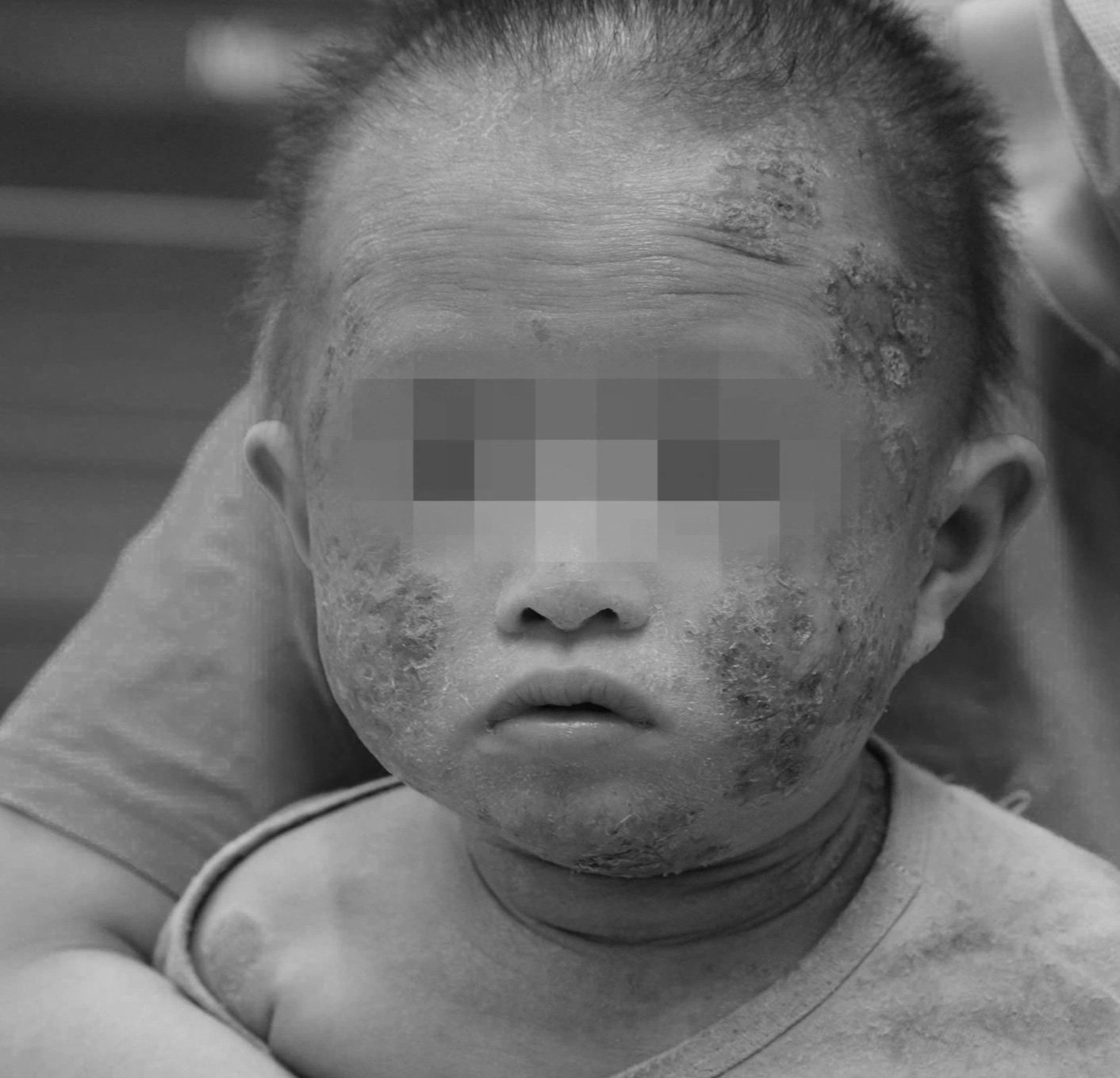
Boy with severe atopic dermatitis - Photo: BSCC
Common but difficult to control disease
Baby T.D.N. (1 year old, in Hai Duong) was discovered by his family to have unusual signs when he was only one month old.
Initially, the baby's cheeks appear slightly red, dry, and scaly.
However, within a few weeks the condition worsened, spreading to the area behind the ears and body folds, oozing fluid, forming scabs, and the child cried a lot.
The baby's mother shared that the family took her to many places for examination and was prescribed topical medications and baths with various leaves. There were times when the condition improved a little, but with each dry weather, N.'s skin peeled more severely. The climax was when N. had an eyelid abscess at 6 months old.
According to Dr. Nguyen Tien Thanh - member of the Vietnam Dermatology Association - who directly treated baby N., atopic dermatitis is a chronic disease commonly found in infants and young children.
Worldwide, about 20% of children under 2 years old suffer from this disease, many of which are severe and have a major impact on quality of life.
"The patient came to the clinic with red, widespread scaly skin lesions, dry cracks, some areas oozing fluid, red, swollen scabs, and signs of secondary infection. The main causes were due to the child having an allergic constitution, dry weather, inappropriate care, and the child's uncontrolled scratching habit," said Dr. Thanh.
The doctor also shared that although atopic dermatitis is not life-threatening, it can cause serious complications if not treated properly.
Why is the disease easy to get worse?
According to experts, atopic dermatitis is a disease related to immune and genetic factors, often greatly affected by the living environment. In young children, cold, dry weather in the North is the main factor that makes the disease worse.

Doctor Thanh examines a child patient - Photo: BSCC
In addition, a newborn's skin is fragile and vulnerable. Constant scratching due to itching not only damages the baby's skin but also opens the way for bacteria to enter, leading to infection.
Given the child's serious condition, Dr. Thanh applied a combination of infection control, skin moisturizing, and home care instructions to the family.
To control infection, children need to use anti-inflammatory topical medications to treat damaged skin areas that show signs of secondary infection.
If the wound is wet and oozing an infectious fluid, low-energy laser therapy can be combined to help the wound dry quickly. Consider systemic antibiotics if the child shows signs of infection.
In addition, combined with moisturizing, the baby's skin's protective barrier is restored with a specialized moisturizer, used regularly to reduce dryness, cracking and itching.
When caring for children, families need to avoid irritants such as chemicals, strong soaps or water that is too hot, and leaves that cause dry skin irritation. In particular, families need to take measures to control children's scratching behavior.
"Diseases like atopic dermatitis require long-term cooperation between doctors and families. Proper treatment not only reduces symptoms but also helps children and families overcome psychological pressures and improve quality of life," Dr. Thanh emphasized.
What to do when detecting atopic dermatitis in children?
According to Dr. Nguyen Tien Thanh, atopic dermatitis is a common disease in children but is easily overlooked or confused with other common skin conditions.
Therefore, parents should never be subjective. As soon as they detect unusual signs such as dry, flaky or red skin, they should take their children to a medical facility with a dermatologist for an accurate diagnosis.
In addition, do not self-medicate your child. Using topical medications of unknown origin or applying folk remedies can make the condition worse, causing dangerous complications.
"Moisturizing is the key to controlling the disease. Use appropriate moisturizers, avoid irritants, keep your living environment clean and airy, and do not bathe in leaves or salt water as this can damage your skin," Dr. Thanh advised.
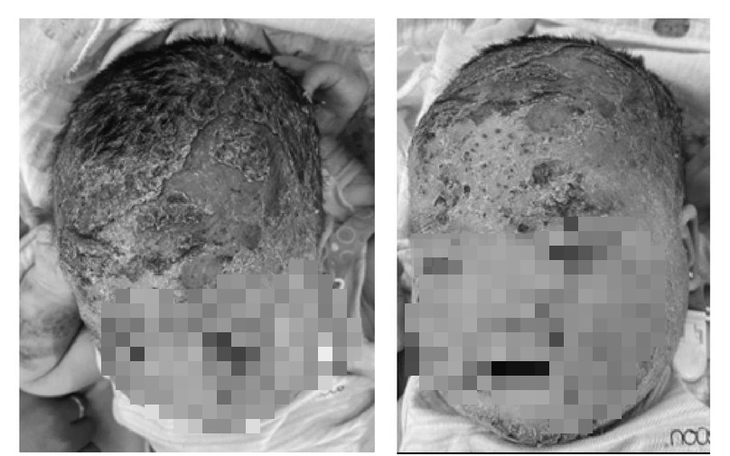 Boy's scalp cracked from bathing in leaves to treat atopic dermatitis
Boy's scalp cracked from bathing in leaves to treat atopic dermatitisSource: https://tuoitre.vn/be-trai-1-tuoi-phong-rop-ca-mat-chay-dich-vi-viem-da-co-dia-20241214114118654.htm



![[Photo] 2nd Conference of the Party Executive Committee of Central Party Agencies](https://vstatic.vietnam.vn/vietnam/resource/IMAGE/2025/3/31/8f85b88962b34701ac511682b09b1e0d)
![[Photo] Speeding up construction of Ring Road 3 and Bien Hoa-Vung Tau Expressway](https://vstatic.vietnam.vn/vietnam/resource/IMAGE/2025/3/31/f1431fbe7d604caba041f84a718ccef7)
![[Photo] Prime Minister Pham Minh Chinh receives delegation of leaders of US universities](https://vstatic.vietnam.vn/vietnam/resource/IMAGE/2025/3/31/8be7f6be90624512b385fd1690124eaa)
![[Photo] General Secretary To Lam receives US Ambassador to Vietnam Marc E. Knapper](https://vstatic.vietnam.vn/vietnam/resource/IMAGE/2025/3/31/5ee45ded5fd548a685618a0b67c42970)

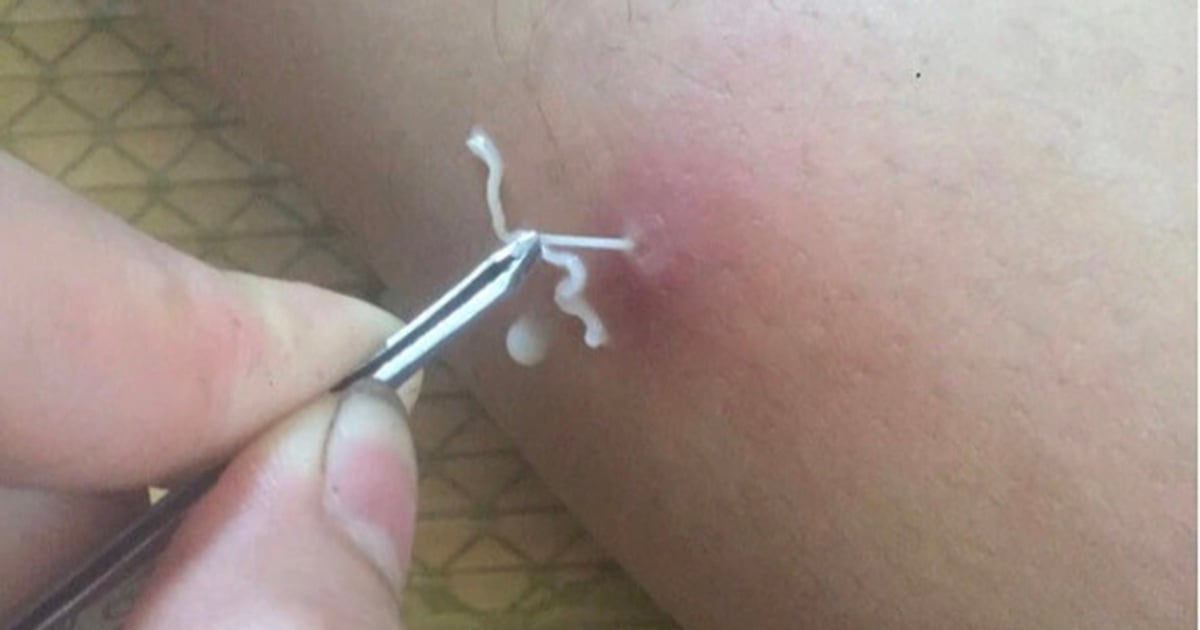





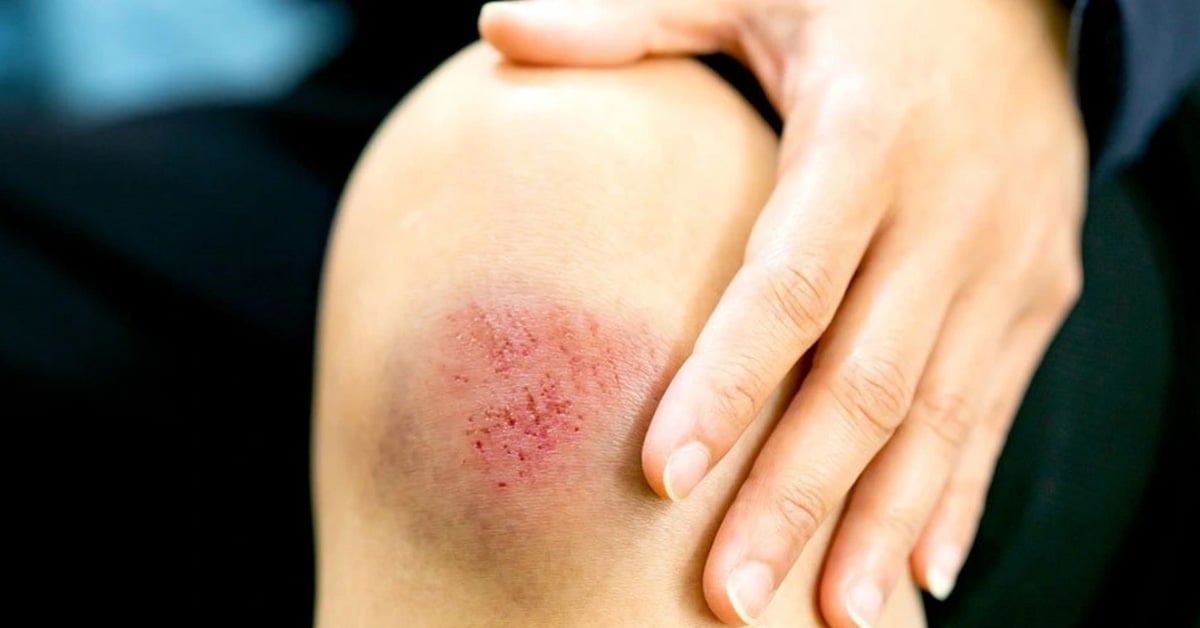











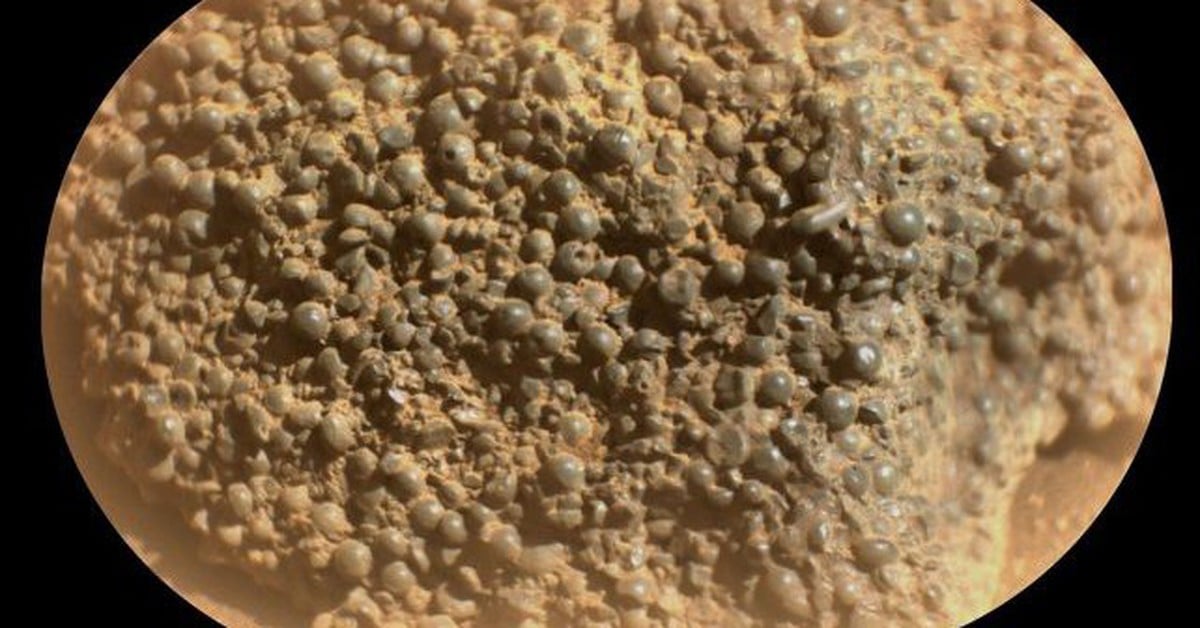





































































![[REVIEW OCOP] An Lanh Huong Vet Yen Cat](https://vstatic.vietnam.vn/vietnam/resource/IMAGE/2025/3/27/c25032328e9a47be9991d5be7c0cad8c)

Comment (0)